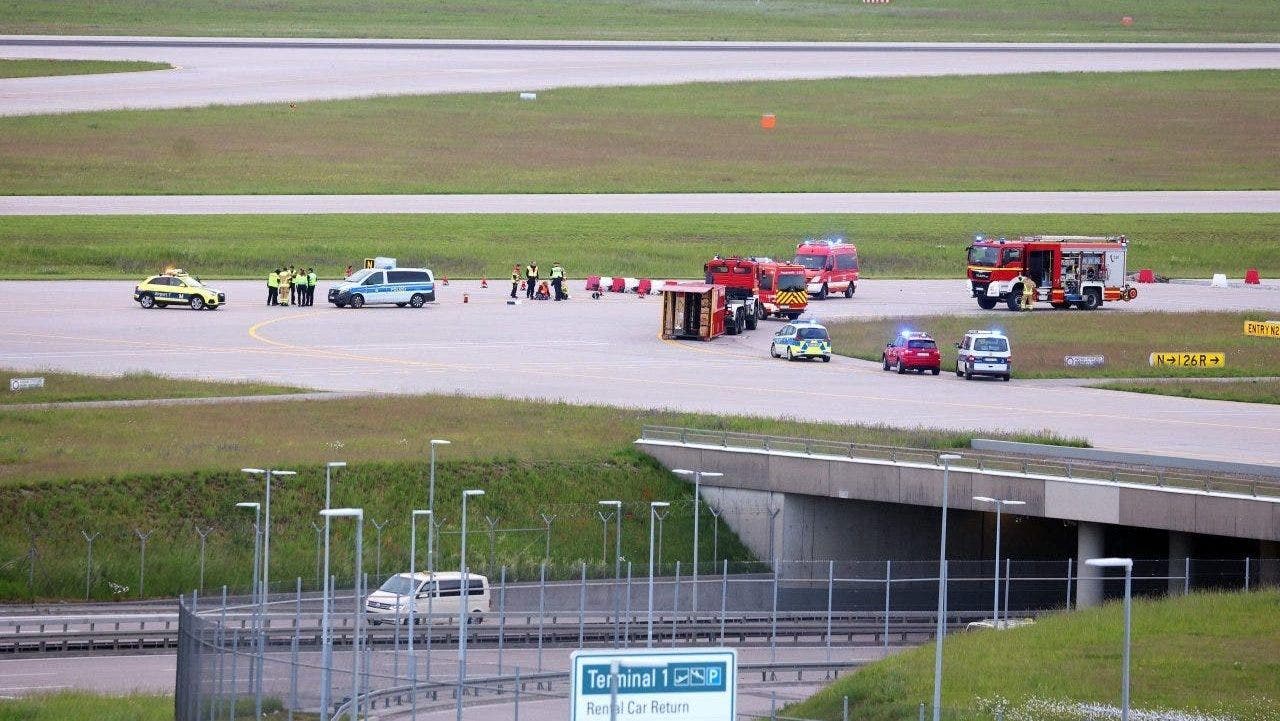World
Hardeep Singh Nijjar killing: What does international law say?

The fallout continues from Canadian Prime Minister Justin Trudeau’s announcement that his government is investigating “credible allegations of a potential link” between the Indian government and the killing of a Sikh leader in British Columbia.
If those allegations are proven, experts said the June 18 killing of Hardeep Singh Nijjar would represent a targeted, extrajudicial killing on foreign soil – and mark a flagrant violation of international law.
“The way Canada chooses to deal with this will show how seriously it’s taking this matter,” Amanda Ghahremani, a Canadian international criminal lawyer, told Al Jazeera.
India has roundly rejected any involvement in the deadly shooting outside a Sikh temple in Surrey, calling Trudeau’s comments on the floor of the Canadian Parliament on Monday “absurd” and politically motivated.
New Delhi also accused Ottawa of failing to prevent Sikh “extremism”, as the Indian authorities previously had designated Nijjar – a prominent leader who supported the creation of an independent Sikh state in India – as a “terrorist”.
Canada has faced calls to release evidence to back up its claims. On Thursday, Trudeau dodged reporters’ questions on the matter, saying his government was “unequivocal around the importance of the rule of law and unequivocal about the importance of protecting Canadians”.
India has for years accused Canada of harbouring “extremist” supporters of the so-called Khalistan movement, which seeks an independent homeland for Sikhs in the modern Indian state of Punjab.
While observers say the movement largely reached its peak in the 1980s, Indian Prime Minister Narendra Modi’s government and its backers have regularly framed Sikh separatism as a pressing matter of national security.
International law experts told Al Jazeera the information that emerges in the coming days could be key to revealing the nature of the possible links between India and Nijjar’s killing. It could also show whether Canada intends to seek recourse, and if so, how.
Ghahremani said the Canadian government’s approach will depend on “what kind of message it wants to send out, not just to India, but any other country who is thinking of potentially committing this type of act in Canada”.
What international law violations could have been committed?
In the House of Commons on Monday, Trudeau stressed that any killing on Canadian soil under the auspices of a foreign government would represent a violation of the country’s sovereignty.
Marko Milanovic, a professor of public international law at the University of Reading in the United Kingdom, explained that this violation of sovereignty allegation – if proven true – would constitute a breach of what is known as “customary international law”.
According to Cornell Law School, that term refers to “international obligations arising from established international practice”, rather than from treaties.
“Essentially, one state is not allowed to send its agents onto the territory of another state without that government’s permission,” Milanovic told Al Jazeera. “Whatever they might do – they can’t go and do gardening, but they also can’t go and commit murder.”
Ghahremani added that if India was involved, the killing would violate the UN Charter, which states that “all members shall refrain in their international relations from the threat or use of force against the territorial integrity or political independence of any state”.
She also explained that while international law outlines “the responsibility of states to other states”, an international human rights system “entails responsibilities to individuals”. For example, both Canada and India are parties to the International Covenant for Civil and Political Rights (ICCPR), a treaty that enshrines the “right to life”.
That means such a killing “is not just a violation of international law, it’s also a violation of international human rights law”, said Ghahremani. However, she added that in the past, countries have cited self-defence as a justification for killing individuals on foreign soil.
That was seen after the administration of US President Donald Trump conducted a drone assassination of Iranian General Qassem Soleimani in Iraq in 2020, as well as when former President Barack Obama’s administration killed Osama bin Laden in Pakistan in 2011.
Ghahremani said the situation in Canada would constitute “such an egregious example of violating state sovereignty – killing someone without any type of judicial process on the territory of another state – that it’s hard for me to think of a possible defence”.
“I think the most likely situation is that India will deny involvement,” she said.
What recourse could Canada pursue internationally?
Canada has not definitively linked India to the killing or released any evidence to back up its decision to go public with the investigation into the suspected connection.
Citing government sources, Canada’s public broadcaster CBC reported on Thursday that the intelligence collected by the Canadian authorities in Nijjar’s case included communications involving Indian officials and Indian diplomats based in Canada.
The report said some of the intelligence came from an unnamed ally in the so-called “Five Eyes” intelligence-sharing alliance, made up of Canada, the United States, Australia, the UK and New Zealand.
Depending on how far Trudeau and his government are planning to push the issue – and if more definitive evidence emerges – they could eventually pursue a case in the International Court of Justice (ICJ), the UN’s main judicial organ, said Milanovic.
“However, both Canada and India made declarations, basically, under the statute to the court saying that the court will not have jurisdiction regarding disputes between Commonwealth member nations,” he said.
“So even in principle, the only way that a case could go to the ICJ is if the Indian government consented to this, and they’re not going to consent to it.”
Canada could also seek to resolve its dispute with India in an international human rights forum if proper criteria are met, according to Ghahremani. “In this case, since the act is a breach of the ICCPR, it would likely be through the UN Human Rights Committee,” she said.
“It’s not a judicial case, so it wouldn’t be a court ruling, but it would be a process that would address the issue between the two states.”
Will it go that far?
Still, several steps would have to happen before a case might be adjudicated in an international court, both Ghahremani and Milanovic agreed.
Such an escalation would largely be dependent on the evidence that emerges, the political will of Ottawa, and New Delhi’s response, among other factors.
“We have to keep in mind that before even getting to a potential ICJ case, Canada could just engage bilaterally with India to ask for compensation or other reparations, such as a declaration of non-repetition,” Ghahremani told Al Jazeera.
Milanovic also noted that only a “very small fraction of international disputes go to a courtroom”, and instead conflict resolution processes – if pursued – are typically handled through direct talks and negotiations.
Information that emerges in the coming days – through both official and unofficial channels – will likely begin to indicate the path Canada plans to take, he said.
“If we get little to no further information about this, it will be reasonably clear that the Canadian government will just want to wait this out and to have the whole thing die a natural death,” he said.
But if more facts emerge, “that will be an indicator that the Canadian government really wants to press this further.”
Is there any other recourse available?
Depending on what evidence is made public, Ghahremani said there are also several domestic opportunities for recourse against India, the most basic of which would be pursuing criminal responsibility for those who directly committed the killing.
Canadian police have said they are looking for three suspects.
“[Canadian authorities] could also potentially go after the intellectual author if they can link that back to somebody, including someone in the Indian government, that may have made the order or that planned the attack,” she said.
Ghahremani added that Nijjar’s family could also likely pursue a civil case against India because the killing took place on Canadian soil; as a result, they would likely not be barred from doing so under a Canadian law that prevents victims of human rights abuses abroad from bringing “suits against foreign governments and foreign agents in Canada”.
Still, Ghahremani said she sees value in Canada pursuing the case in an international forum since that would set a legal precedent. “I think Canada would do itself a favour by taking a very strong stance here to prevent such conduct in the future by any other state,” she said.

World
John Stamos Shares Full House Reunion Photo With Olsen Twins in Honor of Bob Saget’s Birthday

ad
World
Climate activists glue themselves to Munich airport runway, pausing traffic

A group of climate protesters have been arrested in Germany after breaking into an airport and gluing themselves to the runway.
Six activists broke through security fencing at Munich airport in the German state of Bavaria on Saturday, according to the news outlet dpa.
Approximately sixty flights were canceled after the half-dozen protesters glued themselves to the tarmac, forcing officials to temporarily close the airport.
CLIMATE ACTIVISTS ARRESTED FOR BLOCKING AIRSTRIP IN MASSACHUSETTS
Climate activists lie on an access road for runways at the Munich airport. German officials and local media say authorities closed down Munich airport temporarily after six climate activists broke through a security fence and glued themselves to access routes leading to runways. ( (Karl-Josef Hildenbrand/dpa via AP))
An additional fourteen flights into Munich were forced to divert to other nearby airports to avoid the disruption.
Climate protest coalition Last Generation took credit for the stunt, claiming it was intended to draw attention to the German government’s inaction on the airline industry’s environmental impact.
CLIMATE GROUP TAKES RESPONSIBILITY FOR US OPEN CHAOS, OFFERS WARNING: ‘NO TENNIS ON A DEAD PLANET’

Climate activists stuck to a runway access road at Franz-Josef-Strauß Airport early Saturday morning. Climate protection activists paralyzed Munich Airport after breaking into the inner area of the airport grounds. The activists from the group Last Generation were protesting flying, the most polluting form of transportation, said the German news agency dpa on Saturday. (Karl-Josef Hildenbrand/picture alliance via Getty Images)
All six protesters were arrested and charged by law enforcement.
“Trespassing in the aviation security area is no trivial offense. Over hundreds of thousands of passengers were prevented from a relaxed and punctual start to their Pentecost holiday,” German Airports Association General Manager Ralph Beisel told dpa.

Police and firefighters stand on a runway access road at Franz-Josef-Strauß Airport around climate activists who have stuck themselves there. According to their own statements, members of the so-called Last Generation had planned to enter the airport grounds in order to block at least one of the two runways. (Photo: Karl-Josef Hildenbrand/dpa (Photo by Karl-Josef Hildenbrand/picture alliance via Getty Images))
“Such criminal actions threaten air traffic and harm climate protection because they only cause lack of understanding and anger,” German Interior Minister Nancy Faeser wrote about the protests on social media platform X.
The Munich incident was just one of many similar protests around the world against air transportation. Last Generation has performed at least two similar airport disruptions in Germany since last year.
World
Russian court seizes two European banks’ assets amid Western sanctions

Freezing hundreds of billions of dollars in lenders’ assets was part of dispute over gas project halted by sanctions.
A Russian court has ordered the seizure of the assets, accounts, property and shares of Deutsche Bank and Commerzbank in the country as part of a lawsuit involving the German banks, court documents showed.
The banks are among the guarantor lenders under a contract for the construction of a gas processing plant in Russia with the German company Linde. The project was terminated due to Western sanctions.
European banks have largely exited Russia after Moscow launched its offensive on Ukraine in 2022.
A court in St Petersburg ruled in favour of seizing 239 million euros ($260m) from Deutsche Bank, documents dated May 16 showed.
Deutsche Bank in Frankfurt said it had already provisioned about 260 million euros ($283m) for the case.
“We will need to see how this claim is implemented by the Russian courts and assess the immediate operational impact in Russia,” the bank added in a statement.
The court also seized the assets of Commerzbank, another German financial institution, worth 93.7 million euros ($101.85m) as well as securities and the bank’s building in central Moscow.
The bank is yet to comment on the case.
In a parallel lawsuit on Friday, the Russian court also ordered UniCredit’s assets, accounts and property, as well as shares in two subsidiaries, to be seized. The ruling covered 462.7 million euros ($503m) in assets.
UniCredit said it “has been made aware” of the decision and was “reviewing” the situation in detail. The bank was one of the most exposed European banks when Moscow launched its invasion of Ukraine, with a large local subsidiary operating in Russia.
It began preliminary discussions on a sale last year, but the talks have not advanced. Chief executive Andrea Orcel said UniCredit wants to leave Russia, but added that gifting an operation worth three billion euros ($3.3bn) was not a good way to respect the spirit of Western sanctions on Moscow over the conflict.
Russia has faced heavy Western sanctions, including on its banking sector, since the start of the war in Ukraine. Dozens of US and European companies have also stopped doing business in the country.
-

 Education1 week ago
Education1 week agoVideo: Police Use Pepper Spray on Protesters on G.W.U.’s Campus
-

 Politics1 week ago
Politics1 week agoOhio AG defends letter warning 'woke' masked anti-Israel protesters they face prison time: 'We have a society'
-

 Politics1 week ago
Politics1 week agoBiden’s decision to pull Israel weapons shipment kept quiet until after Holocaust remembrance address: report
-

 Finance1 week ago
Finance1 week agoSpring Finance Forum 2024: CRE Financiers Eye Signs of Recovery
-

 World7 days ago
World7 days agoIndia Lok Sabha election 2024 Phase 4: Who votes and what’s at stake?
-

 News1 week ago
News1 week agoThe Major Supreme Court Cases of 2024
-

 World1 week ago
World1 week agoA look at Chinese investment within Hungary
-

 News1 week ago
News1 week agoTornadoes tear through the southeastern U.S. as storms leave 3 dead

















